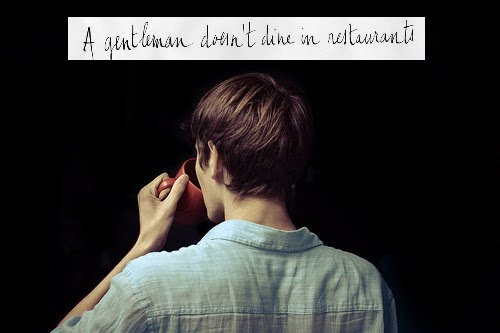More or less, everything
that can be done to dis-
sipate the mass and gloss
of the invasive cistern
seems to have been ex-
ecuted with poise. I'm
not so sure that the rem-
edy hasn't more than un-
derscored the anxiety to
achieve that end. I won-
der how impractical it
would have been to en-
fold the chilly intruder
in rustic materials, and
restore the fertile mig-
ration of shadows to an
alcove, respected.
..
For the beauty of the al-
cove is not the work of
some clever device ..
though we know perfectly
well it is mere shadow,
we are overcome with the
feeling that in this
small corner of the at-
mosphere there reigns
complete and utter si-
lence, that here in the
darkness immutable tran-
quillity holds sway.
I wish a text, even a
scrolling one such as a
blog, could exploit the
gainful amenities of jap-
onesque architecture, as
nourishing hiatuses. Beth
Nelson has gone the fur-
thest, in my observation,
in exploiting picture ed-
iting and layout to this
positive advantage, and
this spiritual refuge of
composition is profound
in photographers cited
in Context.
The communication of the
is past remarking in music;
anyone who revisited Va,
pensiero here the other
day, will have seen that.
In an epistolary blog, the
challenge is considerable
to be able to say, almost
if not completely unliter-
ally, draw peace from this
space. Adjustments acquire
an aura of mood swings, in-
congruous pleadings; a sus-
picious advertisement.
I agree with Tanizaki and
with Terestchenko, who has
written of this as well as
exhibiting it in his work,
that the well-framed mys-
tery is no mere void. It
is an irony of the argu-
mentative mode, that this
can be achieved one of two
ways - discoursing to the
adoptive, or adapting the
essay to the sonata form,
so that in place of the
caesura's expressive si-
lence there can have been
a beginning, middle, and
end of some formal resolu-
tion. But that remains,
audible, space-occupying:
a restaurant.
That compromise, the promise
of the essay form, is still the
most rational where the writer
and the reader may be crossing
paths, but not necessarily, pur-
poses. A visitor is likelier in-
terested in the stimulation of
light; his host may be trying
to turn away from the fray where
it emerges. This is why I do
respect argument, not to turn
away from light or implore its
remission, but to savour its
lenity in the end.
Tanizaki Junichiro
In praise of shadows
Thomas J. Harper and
Edward G. Seidensticker
translation
Leete's Island Books, 1977©








My favorite teacher used to say that music plays itself. I'm highly indebted to him and to my Japanese friend. l'm a very lucky person to have met them.
ReplyDeleteI hope you sensed no doubt's being cast upon such good fortune, Linnea. The blog, in any case, is very lucky in your readership. :)
ReplyDelete